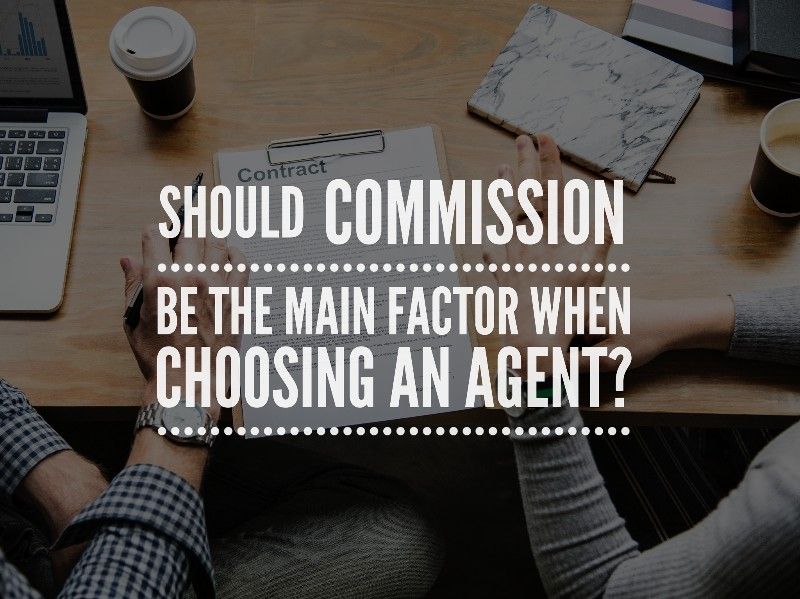
Should commission be the main factor when choosing an agent?
When it comes to selling a home, real estate professionals are often looked at like a commodity.
Owner: "They all do the same job, right? So let's just find the cheapest one and get on with it."
Homeowners understandably find it hard to see why they should pay thousands of dollars more to hire one real estate professional over another. And if all things were equal, going for the lowest fees makes a lot of sense but it doesn't have to be either-or.
In this article, we will run you through a few key differences between a good and a not-so-good real estate professional and provide you with questions to ask when interviewing one to market your home.
Above all, it's important to remember that every property has a range of potential outcomes. Some houses sell cheap, some achieve great prices, and some don't sell at all. Where you end up with your property will in large part depend on who you hire to represent you.
Top agents understand current market dynamics
Their knowledge of the market allows them to position your home in the right way to maximise your chances of securing offers in a reasonable timeframe. Top agents know all the competing sales and can talk to the market with authority when negotiating on your behalf.
Ask your potential hire about the current market. What recent sales will buyers be comparing your home with? How will they reach as many potential buyers as possible?
A good real estate professional knows when to stop talking
There is nothing an agent can say to a prospective buyer that can make them fall in love with your home. But there are a lot of things they say which might talk your buyer out of making an offer. Many a deal is lost by salespeople not knowing the answers to certain questions, or by appearing flippant, unprofessional, over-eager, or downright rude.
It's important to hire an agent who isn't desperate to make a sale, who knows what questions to ask, and most importantly when to shut up.
Visit local open homes in your area before you start interviewing agents, to get an idea of their level of professionalism.
The best agents have a fit database of local buyers (and not a fat database)
It's often helpful if your eventual buyer has worked with your real estate professional on other properties. The added trust created by past experience comes in handy when your chosen salesperson calls a deadline and asks potential buyers to put in their best possible offer. Without some level of trust, buyers are likely to be more cautious.
A lot of agents will tell you that they have a database of thousands. It's quite possible that they have a long list of people who were searching for a home over the past few years. However, consider the likelihood of them having had a recent conversation with that buyer to dig into their updated requirements, budget, and whether they've already purchased a home? You may find that the number of potentially active buyers is a small fraction of that number. Beware of the hype.
Ask your potential hire about their database. How often do they keep in touch with active local buyers? How many houses have they sold in your area?
The best real estate agents are problem solvers
No one can anticipate every potential issue before it comes to light, but the best salespeople can think on their feet and move quickly when problems arise. It's this problem-solving ability that can save you thousands in the long run, by building confidence with potential buyers and by keeping deals together that might otherwise fall apart. They have a support network of contacts who can make things happen on short notice when the need arises.
Ask your potential hire about a recent time when they solved a problem that kept a deal alive.
At the end of the day, you have to choose. The key is to choose wisely. The real estate professional you hire will have a big impact on your end result. Don't let price be the leading factor in your decision-making process, but don't assume you have to keep paying for an outdated business model either*.
Kind regards, Jason Penny
Proppy's Chief Thinkasaurus
* The good news is that you can have your cake and eat it too. In most markets that Proppy.co.nz operates in, we usually have the lowest fees. This is because we're harnessing technology, we've stripped out all the excess and we select only high high-quality agents to get the job done and reward them well. As an example, cellphones in the early 1980s cost $4000 for a handset, a few dollars a minute to call in or out and the battery lasted for 6 hours. A lot of the mainstream agencies are using a business model from the same era. The only difference between then and now is that fees have risen as fast as house prices, outstripping wage growth and without increasing the value of the service. We're not convinced that's a fair deal so we built our model better.